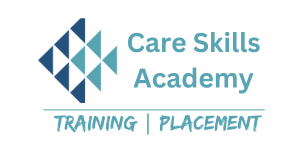The automobile industry is ever-evolving, with advancements in technology bringing new models, designs, and sophisticated systems. As vehicles become more complex, the demand for skilled automobile technicians continues to rise. Enrolling in an automobile repairing course is a smart move for anyone looking to build a career in this dynamic field. In this blog, we will explore the details of automobile repairing courses, the skills you can expect to gain, and why this training is a gateway to a rewarding career.
Why Choose an Automobile Repairing Course?
Automobile repairing courses are designed to provide a comprehensive understanding of vehicle systems and the technical know-how to maintain, diagnose, and repair them. With the global automotive market expanding, having these skills opens the door to diverse career opportunities. Here are some reasons why you should consider taking up an automobile repairing course:
- High Demand for Skilled Technicians: As the number of vehicles on the road increases, so does the need for qualified professionals who can repair and service them. Automobile technicians are always in demand in workshops, dealerships, service centers, and even in freelance roles.
- Career Flexibility: Automobile repairing skills are applicable across various sectors, from auto repair shops and manufacturing units to independent garages. You can even start your own auto repair business with the knowledge you gain.
- Technological Advancements: Modern vehicles incorporate advanced electronics, computer systems, and automated features. An automobile repairing course equips you with the skills to handle these new technologies, keeping you relevant in the industry.
- High Earning Potential: Skilled automobile technicians can earn competitive salaries, especially as they gain experience and expertise in specialized areas like engine diagnostics, electrical systems, and hybrid vehicle technology.
What to Expect from an Automobile Repairing Course
An automobile repairing course covers both fundamental and advanced concepts, providing hands-on training to develop practical skills. Here’s what you can expect to learn during the course:
- Engine Diagnostics and Repair: Understanding the internal combustion engine is the core of automobile repair. You will learn about engine components, common issues, troubleshooting techniques, and how to perform maintenance or rebuild engines.
- Electrical Systems: Modern cars rely heavily on electrical systems for their functioning. The course will teach you about battery systems, alternators, starters, wiring diagrams, lighting systems, and how to diagnose and repair electrical faults.
- Transmission and Drivetrain: You will gain knowledge about both manual and automatic transmission systems, along with the drivetrain components. This includes learning how to service and repair transmission issues that affect vehicle performance.
- Brakes and Suspension Systems: Proper functioning of brakes and suspension is crucial for vehicle safety. Courses cover topics such as brake pads, rotors, hydraulic systems, and suspension components like shock absorbers and struts.
- Air Conditioning and Heating Systems: Learn how to diagnose, repair, and maintain vehicle air conditioning and heating systems, ensuring that cars are comfortable and efficient in all weather conditions.
- Diagnostic Tools and Equipment: Modern automobile repair involves the use of computerized diagnostic tools to identify issues. You will get hands-on experience with scanners, multimeters, oscilloscopes, and other equipment used in the auto repair industry.
Benefits of Enrolling in an Automobile Repairing Course
- Hands-on Learning Experience: Most automobile repairing courses emphasize practical training. You’ll work on real vehicles, gaining the experience needed to troubleshoot and repair various automotive issues confidently.
- Industry-Standard Curriculum: The course curriculum is designed to meet industry standards, ensuring that the skills you acquire are in line with what employers are looking for in technicians.
- Certification: Earning a certificate in automobile repairing adds value to your resume, making you a preferred candidate for jobs in service centers, dealerships, and repair shops.
- Networking Opportunities: During the course, you’ll have the opportunity to connect with industry professionals and fellow students. This network can help you find job opportunities and stay updated on the latest trends in automotive technology.
Career Opportunities in Automobile Repairing
Upon completing an automobile repairing course, a wide range of career opportunities becomes available to you, including:
- Auto Repair Technician: Work in service centers or auto repair shops diagnosing and fixing mechanical and electrical issues in vehicles.
- Vehicle Inspector: Perform detailed inspections of vehicles to ensure they meet safety and emission standards.
- Automotive Service Advisor: Act as a liaison between customers and mechanics, helping customers understand their vehicle’s needs and the services required.
- Specialist Technician: Focus on specific areas like engine tuning, electric vehicles, or hybrid technology, which are in high demand due to the shift toward greener automotive solutions.
Conclusion
An automobile repairing course is an excellent investment in your future if you are passionate about cars and technology. This training will provide you with the skills and knowledge necessary to succeed in a field that continues to grow and evolve. With hands-on learning, industry-standard practices, and the chance to earn a valuable certification, you’ll be well on your way to a fulfilling career in the automotive industry. Whether you dream of working in a high-end repair shop, starting your own garage, or specializing in the latest vehicle technology, this course will equip you with everything you need to make it happen.

